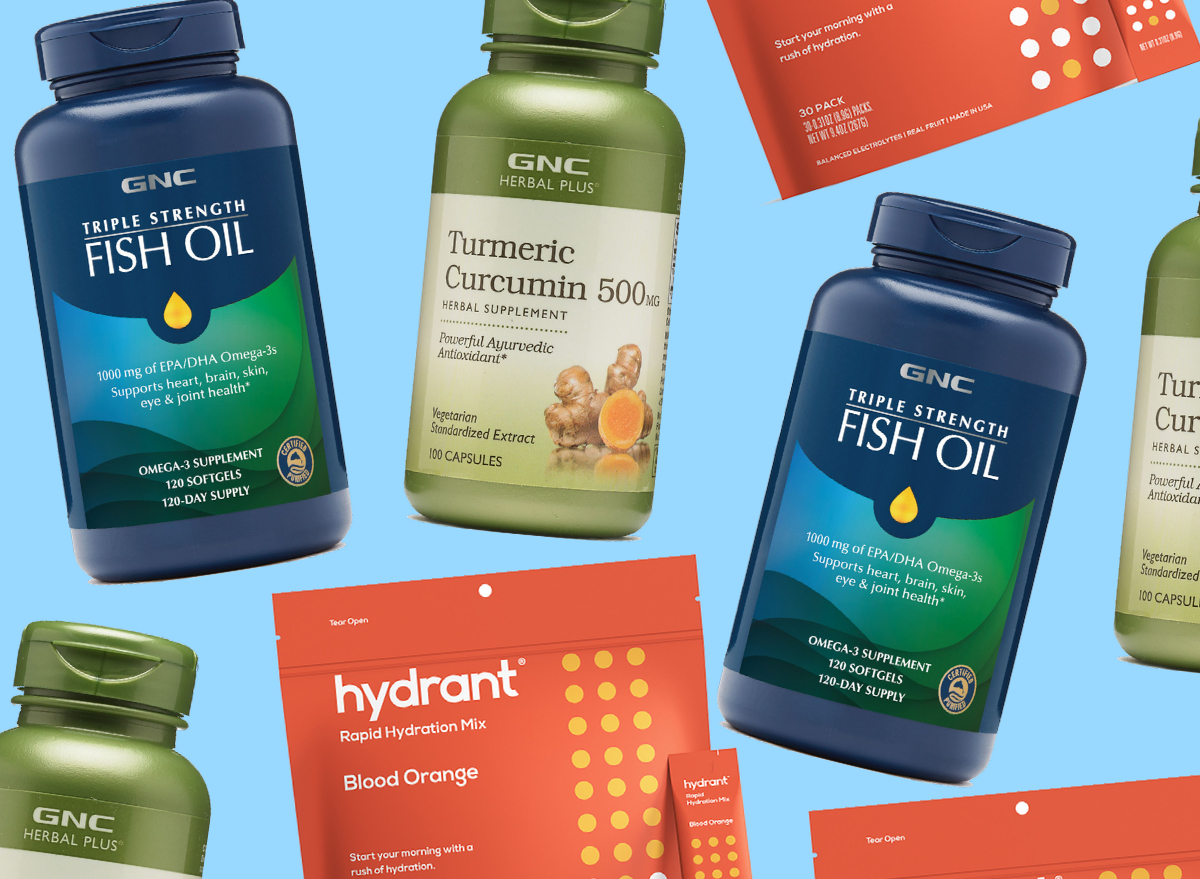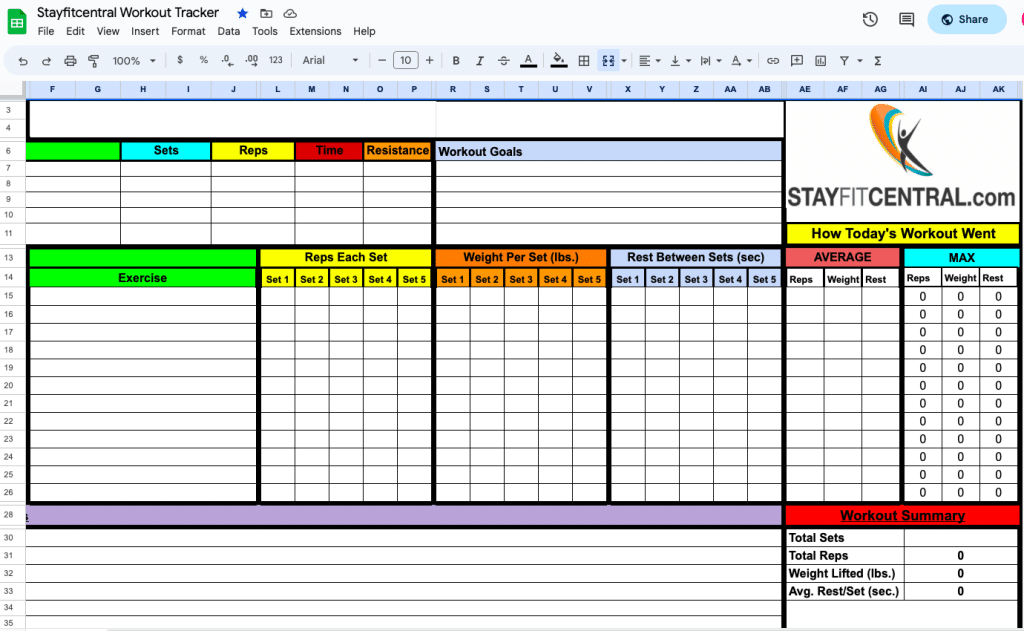Debunking the Hype: The Real Scoop on Dietary Supplements for Athletes
Dive into the world of dietary supplements for athletes as we untangle the knotted strings of myths and facts. From protein powders to vitamin cocktails, athletes are bombarded with promises of enhanced performance and faster recovery. But what's the truth beneath the shiny labels? In this article, we'll explore the misconceptions and unveil the facts about dietary supplements. We'll also introduce a tool – Workout Notepad – that helps athletes track their progress and supplement usage responsibly.
WN
By Workout Notepad
February 25, 2024

The Starting Line: What’s In Your Supplement?
The Starting Line: What’s In Your Supplement?
The Power Play: Nutrients or Nonsense?
In the arena of athletic enhancement, myriad supplements clamor for the spotlight, each promising impressive performance boosts. Yet discernment is key; not all supplements deliver the substantial nutritional bang for the buck they advertise. Take branched-chain amino acids (BCAAs), for instance, which constitute a significant portion of skeletal muscle protein. They are acclaimed for their potential to bolster muscle mass and strength — but the science isn’t unequivocal. Research here teeters between promising and inconclusive, even though BCAAs are generally safe up to 20g/day. Then there’s the energizing rhetoric around caffeine, suggesting it can augment endurance and strength across various sports activities at doses of 2-6 mg/kg body weight pre-exercise. Similarly, creatine stands out with a stronger reputation, extensively acknowledged for enhancing performance in short-lived, high-intensity efforts, while boasting a seal of safety for short-term usage. Iron and protein emerge as the fundamental anchors in this mix — being integral to muscle synthesis and work capacity, especially in female athletes and those on vegetarian diets. The selection gets murkier with supplements like deer antler velvet, DHEA, ginseng, or glutamine, where stakes are high but the efficacy remains shrouded by insufficient evidence. It behooves one to remember that the U.S. Food and Drug Administration regulates these market players, albeit within a framework that requires cautious navigation to avoid interactions with medications, and vigilance against fraudulent products.
On the flip side, other ingredients like quercetin, ribose, and sodium bicarbonate intrigue scientists and athletes alike with their proposed ergogenic (performance-enhancing) properties. Nonetheless, the lack of robust, consistent data often places users in a limbo of efficacy and safety. While the temptation to rely solely on supplementation for optimal performance may be strong, it’s the synergy between diet quality and supplementation that truly catalyzes athletic success. The forthcoming section engages with the protein powder debate, scrutinizing the extent to which these powders are the keys to muscle gains, or if they’re just partial pieces of a much larger nutritional puzzle that includes comprehensive diet planning. Just as supplements are only part of the story, so is record-keeping and analysis of workout routines, which might be elegantly addressed by tools like the Workout Notepad, ensuring informed and balanced approaches to nutrition and training.
Feeding Muscles or Fueling Myths?
Feeding Muscles or Fueling Myths? As athletes pound the pavement on their quest for peak physical performance, many turn to protein powders, seeking a silver bullet for muscle gains. However, navigating the whirling market of supplements requires a closer examination of what truly feeds muscles. Whey protein has emerged as a champion in the bodybuilding arena, appreciated for its ability to enhance immune function and its rich leucine content, an amino acid critical for protein synthesis. The allure of whey lies in its rapid digestion and assimilation, enabling an efficient trigger for muscle repair and growth post-exercise. This anabolic powerhouse is especially attractive to those straining against the clock, providing a quick protein fix when whole food meals are not feasible.
However, elevating protein powders to the zenith of a diet plan can blur the holistic picture of nutrition. Whole foods bring to the table a diversified arsenal of necessary nutrients that no supplement can wholly comprise. Minerals, vitamins, fiber, and an array of macronutrients weave together in the tapestry of a balanced diet, laying the foundation for sustainable muscle growth and overall health. An athlete’s plate should not just sate the ravenous hunger of muscles for protein but should also serve the intertwined needs for recovery, energy, and bodily functions. As the article paces forward, it is critical to recognize that protein powders, while beneficial, represent a single piece of the intricate puzzle that is an athlete’s diet, not a standalone solution. The next section takes a measured stride into evaluating the potentially darker side of the supplements sector, spotlighting the hazards lurking amidst the convenience. Athletes should tread carefully, aware that the unregulated territories of supplement use can sometimes lead to the consumption of contaminated or banned substances, thus unwary use must be replaced by informed decisions in pursuit of health and victory.
Swiftness and Safety: The Fine Line of Supplement Use
The safety of dietary supplements, particularly for athletes, is an ongoing debate touching the precarious balance between achieving peak performance and maintaining health. When athletes sprint down the nutritional supplement aisle, the risks associated with indiscriminate usage loom large. Besides the allure of elevated performance, there’s the ever-present danger of inadvertently consuming products tainted with banned or harmful substances. The competitive world demands the swiftness of results, but this often comes at the price of safety when supplements are chosen without due diligence. Athletes may come across products contaminated with stimulants, estrogenic compounds, diuretics, or anabolic agents—either through contamination or deliberate tampering—to enhance effects, not realizing the repercussions until it’s too late. This concern is heightened by the fact that the Food and Drug Administration (FDA) does not regulate these supplements as rigorously as pharmaceuticals, potentially leaving athletes vulnerable to misinformation and dire health consequences.
Steering clear of such dangers requires athletes to harness both swiftness and safety in their decision-making. It’s imperative to source supplements from reputable manufacturers who adhere to quality and testing standards. Seeking out correct information becomes just as crucial as the supplements themselves; athletes should turn to reliable resources such as certified nutritionists, coaches, or scientifically vetted information streams to differentiate between the nutrient-rich and the nonsensical. As awareness grows, so does the technology assisting athletes in staying informed. Entering the fray is the Workout Notepad, heralded for its ability to track workouts and supplement intake meticulously. As we approach our article’s finish line, the next section introduces how such digital tools not only promote accountability but also ensure that athletes are charting their wellness journeys with precision and care—turning the supplement conundrum from a sprint into a victorious marathon.
Charting Your Path with Workout Notepad

workout progress tracking
As the race towards peak athletic performance continues, the Workout Notepad stands out as a valuable tool in an athlete’s arsenal. Complex dietary assessments and meticulous monitoring of exercises are paramount when striving for optimal outcomes. The app’s customizable features allow athletes to log every meticulous detail of their training regimen and dietary intake, including precise dosages of ergogenic aids. By providing visual representations of both workout progress and nutritional habits, Workout Notepad bridges the gap between two critical components of athletic success: exercise and supplementation. The caution advised with supplement use, as outlined by experts like ISSN, AND, DoC, and ACSM, highlights the importance of tracking intake. This level of accountability and precision in monitoring could help in steering clear of banned substances and preventing unintentional doping, thus ensuring that athletes remain safely within the boundaries of fair play and good health. As seamless cloud backups maintain the integrity of data, athletes can confidently analyze their performance trends over time, identifying which supplements may offer a real edge and which are simply commercial fluff. The amalgamation of data gathered from tools like Workout Notepad could serve as a powerful resource for athletes and their coaches, allowing them to make evidence-based decisions that leverage both safety and efficacy in their quest for excellence. Workout Notepad also facilitates appropriate timing of nutrient intake, enabling users to adhere to recommendations such as taking HMB-Ca or HMB-FA before workouts, as per ISSN guidelines, thereby potentially improving the efficacy of their supplementation strategy.
As our journey in this article approaches the end, we gear up for the next pivotal turn. The focus shifts from technological assistance and meticulous tracking to the foundation of any athlete’s regimen: their diet. In the ensuing segment, ‘The Winner’s Diet: Balancing Supplements and Solid Nutrition’, we will explore the winning formula that marries precisely tracked supplement intake with whole, nutritious foods. It’s in this equilibrium that an athlete finds the steadfast path to victory—a diet rich in essential macronutrients like proteins and nutrients like iron, complemented by the careful use of performance enhancers for recovery, endurance, and muscle building. For the conscientious athletes committed to embracing technology and thorough nutrition, everything from the endurance benefits of beetroot juice to the muscle repair provided by BCAAs will be considered in creating powerful dietary strategies that stand the test of rigorous training and competition.
The Winner’s Diet: Balancing Supplements and Solid Nutrition
In the demanding world of athletics, the true victory lap isn’t run merely on the track, but also in the sphere of nutrition. For an athlete to sustain their performance and reach new peaks, attention must pivot towards a nutrient-dense diet—the real champion of long-term health and vitality. A diet rich in diverse and whole foods promises a breadth of vitamins and minerals, organically lifting performance without the crutch of excessive supplementation. This indefatigable relationship between food and vitality is crucial, as a meal high in complex carbohydrates and apt protein propels an athlete’s energy levels and aids in muscle repair. Proper hydration, integrated with natural food-based nutrients, curtails the dependence on ergogenic aids. The allure of quick fixes via supplementation is magnetic, but grounding one’s intake in proven powerhouses like fruits, vegetables, healthy fats, and a tailored protein regime ensures that the athlete’s body has access to the spectrum of nutrition it truly needs to excel.
As we set the course to cross the finish line of our nutritional marathon, it is pivotal to remember that dietary supplements serve as adjuncts rather than primary sources of nutrition. The spotlight glimmers on heroes such as creatine, famed for its rigorously validated muscle-enhancing properties, yet a prudent approach always calls for moderation and meticulousness. An ally in this diligent journey can be the state-of-the-art Workout Notepad, which helps athletes monitor their dietary and supplement intake while crafting an all-encompassing view of their regimen. Merging technology and nutrition smarts positions the athlete not just for a fleeting moment of triumph but for enduring success. Our closure will not be one of mere tales but a beacon of wisdom through lived experiences, as we share the stories of athletes who championed their podium moment by intelligently navigating the labyrinth of supplements—discerning the beneficial from the unfounded—and those who heeded the lessons of dietary misadventures. Their narratives are not only cautionary but a testament to the prowess of sound nutrition coupled with astute supplementation choices for those seeking to chase victory ethically and effectively.
The Podium: Success Stories and Cautionary Tales

athlete success with supplements
As our story rounds its final turn, we shine a spotlight on athletes who have stood on the podium, not just due to their physical prowess, but also through their informed and careful use of dietary supplements. Their narratives weave caution with triumph, highlighting the importance of research and professional guidance in conjunction with supplementation. An Ontario study provided empirical insights, revealing a vast majority of students, athletes included, partook in supplement use—underpinning these anecdotal accounts with scholarly data. Yet, while supplements such as protein and vitamins bolstered many an athlete’s diet, it was the informed choices, often made under the aegis of healthcare professionals, that marked the difference between victory and defeat. The duality of tales is stark: athletes who meticulously chose their supplements with an emphasis on safety and efficacy often shared success stories, while those who navigated this complex terrain without counsel sometimes suffered setbacks. The telltales—as rich and diverse as the sports world itself—serve as a mosaic of life lessons, teaching us that prudence in supplement use can quite literally tip the scales in favor of a podium finish.
It is from these cautionary tales and championships won that we distill the ultimate wisdom: a diet fortified by select, well-researched supplements, when combined with solid nutrition and expert advice, has proven its merit time and time again. This is a reminder that the fundamental strategies apply to all aiming for the podium; whether professional athlete or fitness enthusiast, success often comes from pairing the right tools—like Workout Notepad’s ability to meticulously track exercise patterns and nutritional intake—with the conviction of an informed athlete. They go hand in hand: technology and knowledge, practice and dedication, in the multivalent quest for excellence. The myriad stories of athletes, both celebrated and cautioned, beckon us to the future of sport and nutrition—a future grounded in informed decisions. And with that, we vault over the finish line of our own exploration, inviting readers to stride forward, armed with insights and inspiration from those who’ve already run the race.
SOURCES
- https://us.sodexo.com/inspired-thinking/blogs/myth-busting-supplements.html
- https://www.usada.org/spirit-of-sport/education/supplement-myths-what-athletes-need-know/
- https://www.eatthis.com/wp-content/uploads/sites/4/2021/08/supplements.jpg?quality=82&strip=1
- https://ods.od.nih.gov/factsheets/ExerciseAndAthleticPerformance-HealthProfessional/
- https://www.fda.gov/food/dietary-supplements
- https://ods.od.nih.gov/factsheets/ExerciseAndAthleticPerformance-HealthProfessional/
- https://www.nutrition.gov/topics/dietary-supplements/dietary-supplements-athletes
- https://themusclephd.com/videos/whey-protein-vs-whole-food/
- https://www.trainerize.me/articles/protein-supplements-vs-whole-foods-a-comparative-guide-for-the-busy-individual/
- https://pubmed.ncbi.nlm.nih.gov/27552474/
- https://www.nationwidechildrens.org/specialties/sports-medicine/sports-medicine-articles/dietary-supplements-and-young-athletes
- https://ods.od.nih.gov/factsheets/ExerciseAndAthleticPerformance-HealthProfessional/
- http://www.gssiweb.org/sports-science-exchange/article/sse-150-dietary-assessment-methods-for-the-athlete-pros-and-cons-of-different-methods
- https://stayfitcentral.b-cdn.net/wp-content/uploads/2023/04/Screen-Shot-2023-04-18-at-4.14.12-PM-1024x631.png
- https://familydoctor.org/nutrition-for-athletes/
- https://ods.od.nih.gov/factsheets/ExerciseAndAthleticPerformance-HealthProfessional/
- https://www.ncbi.nlm.nih.gov/pmc/articles/PMC6680744/
- https://www.ncbi.nlm.nih.gov/pmc/articles/PMC9570738/
- https://cdn.sanity.io/images/263h0ltd/production/3e4676ce8089548678bc775ba67df17716754ba6-600x400.jpg?w=600&h=400&q=90&fit=fillmax&auto=format
